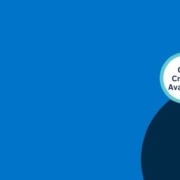WELCOME TO DEPO TALK: Episode 6: “The BS Edition: Bad Situations/Brilliant Solutions”
/in Court Reporting, Industry Updates, Tips & Tricks/by Kerry SauriolFace-to-Face with Leanne Kowalyk
/in Canada, Court Reporting, Industry Updates/by Kerry Sauriol
Our very own Leanne Kowalyk, RCR, Director of Court Reporting, Canada, is heading out on the road to take the opportunity to meet you – our favourite court reporters starting with Kamloops on Monday, September 26th.
After visiting Kamloops, Leanne will be heading across the country and will be hosting reporter events as follows:
Edmonton: Tuesday, September 27
Calgary: Thursday, September 29
Regina: Monday, October 3
Saskatoon: Tuesday, October 4
Toronto: Wednesday, October 5 and Thursday, October 6
Vancouver: Wednesday, October 12
Victoria: Monday, October 17
The visit to Calgary ties in with the ASRA Conference in Calgary, September 30-October 2, 2022. You still have time to register to attend.
Check your inbox for information about locations and times to meet up with Leanne.
Top questions asked and answered by the Veritext Transcription Team!
/in Industry, Industry Updates, Tips & Tricks/by Megan EjackOur dedicated legal transcription team oversees every step of the transcription process, and every transcript is thoroughly checked by our dedicated quality control department.
See here what it takes to succeed as a transcriptionist.
Reporter Series: Workshop Announcement
/in Canada, Court Reporting, Industry Updates, Webinars/by veritextcanada_48bzhlMark your calendars for April 23! We are pleased to have Janice Plomp present a new workshop for our reporter team.
We have a two and a half hour powerhouse session with Janice Plomp, Case Catalyst trainer extraordinaire, to guide us through AccelerWriters and Power Defines. This workshop will include a short break and a Q&A session at the end.
This workshop is open to all reporters across Canada and will cover the following:
- Macros and AccelerWriters
- Power Defines
- Scan Defines
- Speaker Defines
There will be plenty of time for a Q&A session with Janice and co-host Leanne Kowalyk, RCR, our director of court reporting (Canada).
Join us on April 23, 10:00 a.m. to 12:30 p.m. PDT on Zoom. Please register here as space is limited.
About Janice Plomp, RDR, CRR, CRC, CRI
After 28 years as an official reporter and CART captioner, Janice joined the NAIT Captioning and Court Reporting program in 2010 as a full-time instructor. There she has the privilege of sharing her experience and passion for the profession with the next generation of reporters. She is a member of the Alberta Shorthand Reporters Association, the British Columbia Shorthand Reporters Association and the National Court Reporters Association, and she currently serves on the NCRA Test Advisory Committee.
As a Stenograph certified independent training agent, Janice enjoys helping reporters discover the latest and greatest features that Case Catalyst has to offer. She believes in fun, friendly and relaxed workshops that allow reporters to get hands-on.
“I want you to feel confident applying the skills you learn today to the job you take tomorrow.”
— Janice
Meet NAIT Student Karen Collis
/in Community, Core Values, Court Reporting, Industry Updates/by veritextcanada_48bzhl
Because we are passionate about court reporting and its crucial role in the legal industry, we have long supported NAIT and their excellent Captioning and Court Reporting program. Leanne Kowalyk, realtime court reporter and director of court reporting, will be speaking to NAIT students on February 15th about her experiences and career, and she also managed to interview a current student about their experience with the program.
What drew you to the industry of court reporting and brought you to the Captioning and Court Reporting program at NAIT in the first place?
My mom has been in the industry for over 40 years, so I’ve been surrounded by court reporters my entire life. To be honest, I had no interest in pursuing it myself. It wasn’t until my sister decided to go to NAIT for Captioning and Court Reporting that it became a possibility. At some point I started scoping for them and saw how fun of a job it was. I saw how every day is different and how there are always opportunities to learn something new. I decided to take the A to Z program, and the rest is history. I’ve been loving learning this new skill and can’t wait to start.
What is your dream job within the industry that you hope to work towards?
I think once I’ve built up my experience and have confidence in my writing ability, I would love to do court work. I’ve always had an interest in criminal cases and true crime, so knowing I’m in an industry that could get me in the room is super cool. One of the reasons I knew court reporting was something I would love to do is because you get to help people. Everyone deserves their voice to be heard and their day in court. Having the ability to be that neutral party in the room that writes it all down would be amazing.
Which part of the program have you enjoyed the most so far?
I loved our law classes with Janice Plomp. I had a general curiosity and a very basic understanding of our law system going into the class from high school. It is so beneficial to know what someone is talking about within a dictation. It was a great opportunity to hear some incredible stories from Janice. Hopefully, one day I can use my knowledge from that class to avoid jury duty!
Conversely, what has been the most challenging piece of reporting school, and how did you overcome it?
The transition from theory into speed-building was probably the hardest thing to overcome. I put so much time into practicing theory, but it wasn’t clicking for me as fast as I had hoped it would. Then suddenly I had to switch my practice from drills to trusting that the theory was there. Those first few speed tests were terrifying.
The amount of pressure I put on myself to do well did not help me to do well. It took me a few months to calm down and trust that I knew what I was doing.
What is the best piece of advice you’ve been given along your journey?
Much like when I was younger, I continue to be surrounded by court reporters, and they are always so quick to share tips and tricks to get through the program. One that stands out is that each test is an opportunity. An opportunity to learn new vocabulary, new briefs and new ways to write. It helped change the way I looked at tests. Whenever I failed one — which continues to be quite often — it was crushing. I put so much onto those tests that when I failed, it was a direct reflection of myself. Once I was able to find the positives in every opportunity, a failure meant another chance to learn more.
What advice do you have for anyone looking for a new career?
Don’t think about how long it takes to get into a new career. My granny gave the best advice about this. When my uncle wanted to go back to university for teaching, he said he would be 30 years old by the time he graduated. In response she said, either way you’ll turn 30; it’s up to you if you turn 30 with a degree or without one. This is something that I’ve applied to all aspects of my life. I’m going to be turning 28 in March, and even though I’m one year past when I was hoping to graduate, I’m always going to be ahead of the version of myself that chose not to go back to school. The best thing to do is to change your perspective and take the plunge.
Complex Cases Simplified: Gaining Logistical Control From Calendaring to Courtroom
/in Clients, E-Services, Industry Updates, legaltech, News & Events, Security, Technology, techthatconnects/by veritextcanada_48bzhlJoin us on December 22 at 12:00 p.m. PT for a FREE one-hour webinar hosted by us, Reportex, a Veritext Company.
We are very pleased to present you with an opportunity to earn one hour of CPD credits before the year wraps up and to learn about the tools and practices available to you when taking on a complex case.
Courts, lawyers and mediators have been using digital tools to enhance the entire legal system from discovery all the way through to hearings and trials. The ability to expand access to court proceedings that were once hampered by distance or scale is now encouraging more people to embrace a wider use of technology across the legal industry. Our team is here to help you navigate the process of adopting this innovative technology.
This one-hour webinar will take you through the key areas of managing a large or complex case with the latest in legal technology. We will take a dive into the tools and services available for managing document production and examinations for discovery as well as other e‑solutions for complex proceedings.
This includes:
- What IS a Complex Case?
- Security concerns
- Document depositories
- Virtual discoveries
- Paperless exhibits
- Virtual trials
Space is limited, so please register here to secure your spot.
Community Building and the Future of Court Reporting in Canada
/in Canada, Connection, Core Values, Court Reporting, Industry Updates, Services, Team/by veritextcanada_48bzhl
No matter where you are located, as a court reporter you have likely experienced huge shifts in the industry. With COVID-19 rapidly transporting most legal services to virtual and hybrid systems, you have embraced navigating this new technology, from digital exhibit marking to document sharing.
At Reportex we have always tried to make the lives of our court reporters better with our thoughtful extras. We provide in-house training via workshops and one-on-one support to ensure comfort and proficiency in the latest court reporting technology and transcript editing practices. Our QC team is also integral in ensuring our consistently high standards as well as sharing useful tips along the way. We pride ourselves in continually fine-tuning our processes to provide reliable and seamless court proceedings for all our clients.
And now we want to do even more. We hope you will watch this space to see more news and stories that affect your life and what you do for a living. And more importantly, what we — now a Veritext company — can do for you as part of our expanding team. We are currently revamping our blog, developing a specialized newsletter, using LinkedIn to meaningfully connect as well as planning more events and workshops to speak to what is important to you, the heart of our business.
Meet Our Director of Court Reporting for Canada
You all know our realtime reporter Leanne Kowalyk. She was our operations director, and now Leanne is the director of court reporting for Canada. Leanne has walked in your shoes throughout her career and is now taking the lead in reporter relations. We asked Leanne for her thoughts on the changes we are experiencing at Reportex and throughout the industry at large across Canada.
If you had a crystal ball in front of you, what would you see lying ahead for the role of a court reporter in the future?
I believe there will always be exciting opportunities for court reporters across Canada. Will there be changes along the way? Of course. Evolution is a necessary part of sustainable opportunity.
I expect that we will lose a percentage of our workforce over the next five years as reporters retire faster than they are coming out of school, so I see a transition on the horizon in that regard. In the States as a whole they expect to be down a third of reporters five years from now. I expect a similar trend here, and the impact of that will be felt in different ways depending on which province you’re in and the current landscape.
In BC we anticipate the insurance caps and “no fault” will begin to impact us over approximately that same time frame, so in a perfect world those two issues will equalize to a certain extent. Having said that, I expect hybrid/virtual work is here to stay, so in joining the Veritext family, we will be opening up that national pool of work to all Veritext reporters across Canada, depending on the designations they hold. In the event that we do end up with a shortage of work here in BC, it will only serve as an opportunity to lend our neighbours a hand across Canada when they are running short (and vice versa).
And what do you envision as your role here in creating that vision?
My responsibility is to anticipate and help navigate these changes in the most smooth, inclusive and supportive way possible while trying to make it a fun experience along the way! The more doors that reporters have open before them, the more opportunities they will have, and there truly are so many. My role is to ensure those doors are open to our reporters so that when they are ready, they will possess all the tools they need to walk right on through them (should they choose to) feeling confident and capable.
For the “newbs” just starting their court reporting careers, can you share any stories from your experiences that highlight how dynamic the role can be?
I would say I’ve experienced the most dynamic part of reporting when faced with the unexpected. Whether it be replacing a sick reporter last minute on an unfamiliar realtime trial or feeling like a rock star when requested back by counsel on a matter that has rebooked, it’s never a dull moment! There is very little you can anticipate in this career, and the more adept you are at going with the flow, the more you will enjoy it.
Sometimes there are unanticipated witnesses, out-of-town jobs or day-of bookings that can be the most memorable and interesting. On the face of it a discovery could look quite predictable, but upon arrival you find out it’s a complicated plane crash, and you learn things you didn’t know you didn’t know about air travel!
One of the occurrences where I was requested by counsel to cover a continuation happened to be a job at a maximum security prison. One day I was writing a regular in-office job, and the next I’m moving chairs around a room with a convicted murderer setting up for a discovery. Thankfully, he was quite pleasant, and rest assured, there were ample corrections officers keeping a watchful eye.
I also had the privilege of covering some days on Vancouver’s first fully electronic trial, which was quite surreal and incredibly interesting.
Once you become confident with your writing and your equipment and have that to rely upon, it becomes easier and easier to just say yes and jump at the opportunities as they arise.
You truly never know what you’re walking into every day, and for me that’s always been a part of the charming and dynamic nature that I love.







